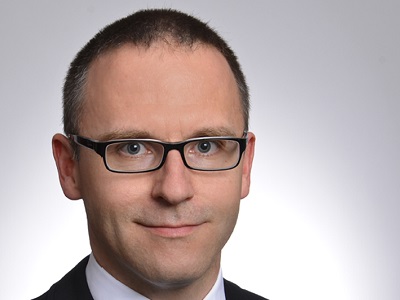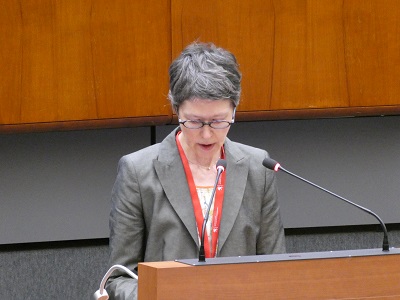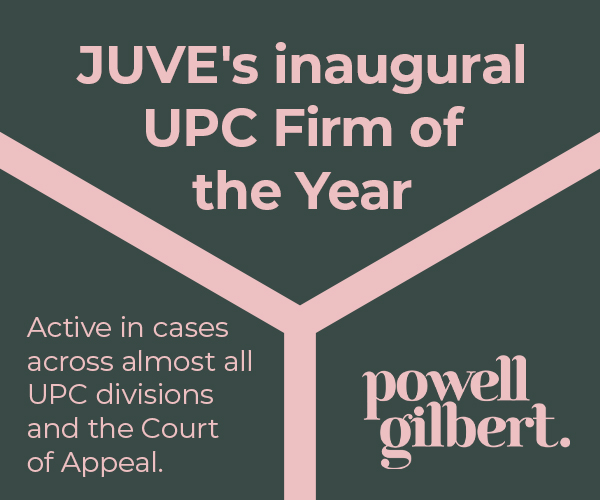Dutch and German judges lead the pack in UPC cases
Matthias Zigann, Tobias Pichlmaier, Andras Kupecz, Edger Brinkman and Ronny Thomas are the judges currently overseeing the highest number of UPC cases. JUVE Patent's data analysis reveals that the dominance of German judges is strong, but Dutch judges are forming a significant counterbalance. The list also shows a surprisingly solid presence for UPC judges from Italy and Bulgaria.
2 November 2023 by Mathieu Klos
Prior to its launch, its supporters would often describe the Unified Patent Court as like a heavy, unstoppable oil tanker. From 2016 to 2021, its founders and potential users would deploy this image during the phase – even when the constitutional challenges in Germany brought the project to the brink of collapse. But, in the end, this – and even a global event like Brexit – could not stop the UPC.
Today, and back to that same image: four months after the UPC launched, observers could now describe the new patent court as a tanker that departed its port very slowly but then, after a few weeks, began to pick up speed.
Currently, 90 cases are pending at the UPC’s Court of First Instance, according to a court spokesperson who confirmed the statistic to JUVE Patent. These cases include 47 infringement cases and 23 revocation actions, as well as six counterclaims for revocation, nine applications for preliminary measures, and four applications for preserving evidence and inspection. The Court of Appeal also has two pending appeals.
But not all UPC first instance proceedings are open to the public. Those wishing to view the relevant documents require access to the court’s Case Management System (CMS), which is currently only available to registered representatives from the legal profession. Other system users and observers must rely on publicly available information accessible via the case search feature on the UPC website, or via published judgments and orders.
UPC source of information
As of 1 November 2023, the CMS showed 81 UPC cases as publicly viewable. In addition, a lawsuit between Fives ECL and REEL GmbH to determine damages is currently pending at the Hamburg Local Division.
Because the CMS is not yet set up for these types of case, the court is processing this suit via hard copy. These 82 proceedings form the basis of analysis in this article, since they provide reliable data on the parties, type of lawsuit, court and composition of the panel of judges. The editorial team does not have any data on the other eight actions that the UPC says have been filed.
Munich in the lead
It is no surprise that most UPC lawsuits are currently pending at the Munich local division. Right from the court’s launch, parties filed many cases at the Munich local division. According to data evaluated by JUVE Patent, it currently has 24 cases, followed by the Paris central division with 15 cases. The local divisions in Düsseldorf, Mannheim, Milan and Hamburg each have ten, eight, seven and six, respectively.

Matthias Zigann
It is likely that overall numbers are slightly higher due to eight pending cases that viewers can only see in the CMS. However, the general image that the Munich local division under presiding judge Matthias Zigann is currently the most popular UPC court remains unchanged.
Parties have filed four more cases with the Munich central division, with no lawsuits currently pending at the Milan central division.
Dutch judges oversee many cases
Many local divisions, including in Brussels, Paris, The Hague and Vienna, presently have just one or two cases. But their judges are not sitting around idly: instead, after their German colleagues, Dutch patent judges have the highest number of cases.

András Kupecz
For example, the former dual-qualified lawyer and patent attorney András Kupecz is something of a UPC rising star. Originally appointed as a technically qualified judge, he was promoted to legally qualified judge shortly before the UPC started.
Kupecz cements his name
Today, the UPC has assigned Kupecz in one of the few full-time roles at the Munich central division. However, he also frequently works as the third foreign judge at the Munich local division. For example, he is currently present alongside Matthias Zigann and Tobias Pichlmaier in several lawsuits brought by 10X Genomics against Nanostring.
Zigann and Pichlmaier, the two German judges, are permanent at the Munich local division and – with 24 cases each – the busiest UPC judges. They are followed by Kupecz, who has 20 cases – but only four of these are at the central division, Kupecz’s actual place of work. For the other cases, he travels to Düsseldorf or Vienna, as well as frequently sitting as the third foreign judge at the Munich local division.
In the dispute between Panasonic and Oppo/Xiaomi over mobile communications standards alone, the Dutchman and his two German colleagues have six cases on the books in Munich. Furthermore, Kupecz’s mastery of the German language no doubt increases his appeal.
Frequent travel in the UPC area
While Edger Brinkman is presiding judge of The Hague’s local division, so far it has heard just one case in the action brought by Plant-e against Akyne Technologies. Nevertheless, the well-known Dutch judge has racked up an impressive twelve cases. He too is frequently in action as the third foreign judge at the German local divisions.
Brinkman is also present in six actions brought by Panasonic vs. Oppo and Xiaomi at the Mannheim local division, alongside permanent judges Peter Tochtermann and Holger Kircher. He will also hear the UPC’s first SEP case brought by Huawei against Netgear at the Munich local division. As such, mobile communications patents currently account for the bulk of Brinkman’s UPC cases.
Margot Kokke will also be travelling around Germany in the weeks ahead. She is the second permanent judge at The Hague’s local division but is currently hearing proceedings at the Hamburg local division between 10X Genomics and Nanostring. In Munich, she is presiding over two suits between Edwards Lifesciences and Meril Life Sciences. All three cases are over medical products. Altogether, Kokke’s caseload comes in at five.

Bérénice Thom
The Dutch judges, all of whom are highly experienced, therefore play a key role in German proceedings. Lawyers assume that they will give the self-confident German judges a run for their money.
This, together with the fact that most Dutch people speak excellent German and/or English, means the UPC often selects the country’s judges as the third judge in German proceedings.
No fewer than six
Despite the high numbers in Munich, the remaining German judges are still hearing between six to ten cases each. All are assigned as permanent judges to their local division and only travel to other UPC locations in exceptional cases. Ronny Thomas and Berenice Thom are currently working on ten and nine apiece at the Düsseldorf local division.
Peter Tochtermann and Holger Kircher have eight proceedings in Mannheim. Sabine Klepsch and Stefan Schilling in Hamburg are hearing seven and six cases respectively.
To east and southern Europe
Bulgarian judge Tatyana Zhilova is a rather unknown element in the patent world. Currently a judge at the Sofia Administrative Court, she also now sits on the Paris central division. Zhilova and Italian Supreme Court judge Paolo Catallozzi are hearing nullity suits filed by NJOY against four patents held by VMR Products.
The Bulgarian national is also assisting the Munich local division as a foreign judge in a mobile communications case brought by Avago against Tesla, as well as in a dispute between Dexcom and Abbott over a medical device.

Ronny Thomas
Like many of her German colleagues, Zhilova is working on eight cases. Her two colleagues Rute Lopes and Mojca Mlakar sit at the helm of the Lisbon and Ljubljana local divisions, although so far parties have not filed lawsuits here.
Lopes is, however, hearing three actions at the Düsseldorf and Paris local divisions, as well as at the Nordic-Baltic regional division. Mlakar is working on proceedings in Düsseldorf and Munich.
High-ranking UPC representatives publicly emphasise that the judiciary must ensure that all first-instance legally qualified judges are well utilised. They say that a balanced distribution of foreign judge positions, with judges from all countries, is also important to the UPC’s upper management.
Data from the first 82 proceedings seems to confirm this. Excepting Florence Butin, the president of the Court of First Instance, none of the remaining 29 LQJs is currently without a case.
Solid start for Italian judges
For a long time, Italy went back and forth over whether to participate in the UPC at all. The country only ratified the UPC Agreement late in the day. But now Italian patent experts are committed to the new court.
The Milan local division quickly became a hotspot for trade fair injunctions in the first few weeks, which it granted at the request of Oerlikon against Himson and the Bhagat Group. Two principal proceedings immediately followed. Progress Maschinen & Automation AG also recently chose Milan for its Application to Preserve Evidence under Rule 192, UPC Rules of Procedure, and for an Application for Inspection under Rule 199, RoP.
Ocado also sued AutoStore in Milan, although the parties have now settled the dispute. The two permanent judges Pierluigi Perrotti and Alima Zana thus count five and seven lawsuits respectively, with Parisian judges Camille Lignieres and Carine Gillet providing assistance.
A slow start for Paris
France is generally considered an important country for the UPC. As well as acting as a counterbalance to Germany, the French capital is the seat of the central division. Furthermore, the president of the Court of First Instance, Florence Butin, is French. Butin will have a huge influence on the new court, since she will have to make many organisational and procedural decisions that will determine the UPC’s direction in its early days. This could be one reason why Butin is not currently hearing any proceedings.

Florence Butin
On the other hand, her colleague at the Paris central division, François Thomas, has nine cases and is thus the French judge with the most cases at present. Revocation claims by NJOY account for six out of nine of these claims.
But companies are showing more reserve in using the Paris local division for their lawsuits. Only Dexcom has filed a suit here, which is against Abbott in its medical products dispute.
Presiding judge Camille Lignieres is therefore also active in Milan, as well as in the Hamburg local division, in the dispute between AGFA and Gucci over leather product printing technology.
English the UPC leading language
The publicly available data also offers a first impression of the languages currently used in the courts. Currently, the courts are conducting 41 of the 82 suits evaluated by JUVE Patent in German, with 34 of 82 taking place in English.
Italian is also well represented, with five proceedings. For example, Oelikon has made good use of the Milan local division in its actions against competitors Himson and Bhagat Group. The UPC has already handed down several decisions in the dispute, including successful trade fair injunctions.
So far, the court has conducted just one lawsuit in Dutch and one lawsuit in French. For example, the Brussels local chamber is hearing a dispute between Jozef Nelissen and OrthoApnea over a medical product in Dutch.
One in French
Hanshaw’s revocation action over a SES-imagotag mobile communication patent is taking place in French at the Paris central division, although the Paris and Munich central divisions are hearing the 14 remaining revocation cases in English. Of these, NJOY filed ten lawsuits against patents held by Juul and VMR Products for cigarette technology. This series of proceedings is probably the largest to be launched at the UPC this autumn.
Unsurprisingly, the UPC’s Scandinavian branches hear their cases in English, such as between Edwards Lifesciences and Meril, and Ocado and Autostore, at the Nordic-Baltic regional division. The division is also conducting AIM Sport’s two lawsuits against Supponor over sports stadium advertising at the Helsinki local division in English. The Paris, The Hague and Milan local divisions are also using English instead of their own national languages.

Tobias Pichlmaier
First German cases in English
Occasionally, the German local divisions hear suits in English. For example, Bette filed its counterclaim of revocation against Kaldewei over bathroom technology with the Düsseldorf local division in English, although Kaldewei launched the infringement suit in German.
Dexcom brought an infringement suit against Abbott in English before the Munich local division.
On the other hand, judges conduct most proceedings at the German UPC courts in German, including the twelve lawsuits filed by Panasonic vs. Oppo and Xiaomi at the Mannheim and Munich local divisions.
Move from Munich
In mid-October, photo technology manufacturer Fujifilm took a different approach against Kodak. The three lawsuits over offset printing plates comprise the most recent major series of UPC proceedings, with parties filing the actions exclusively in English. Moreover, Fujifilm chose Mannheim and Düsseldorf over the popular Munich local division.
Matthias Zigann and Tobias Pichlmaier will no doubt be on board with this, given their high workload in Munich. Some claimants already fear that the lawsuits could drag on, but there are no indications of this yet; so far, the court has only heard PI cases. Furthermore, the court has not yet heard its first infringement hearings.

